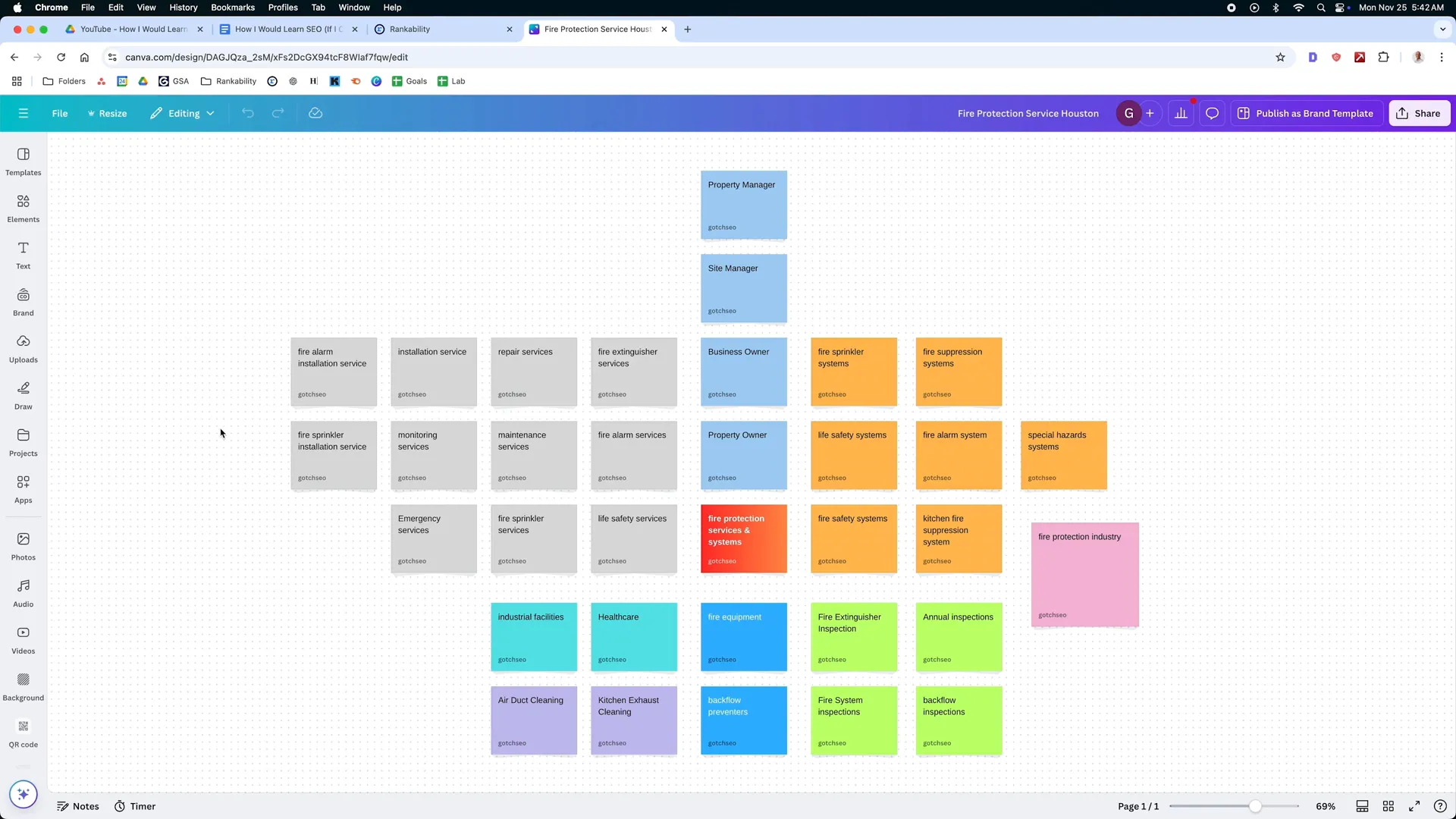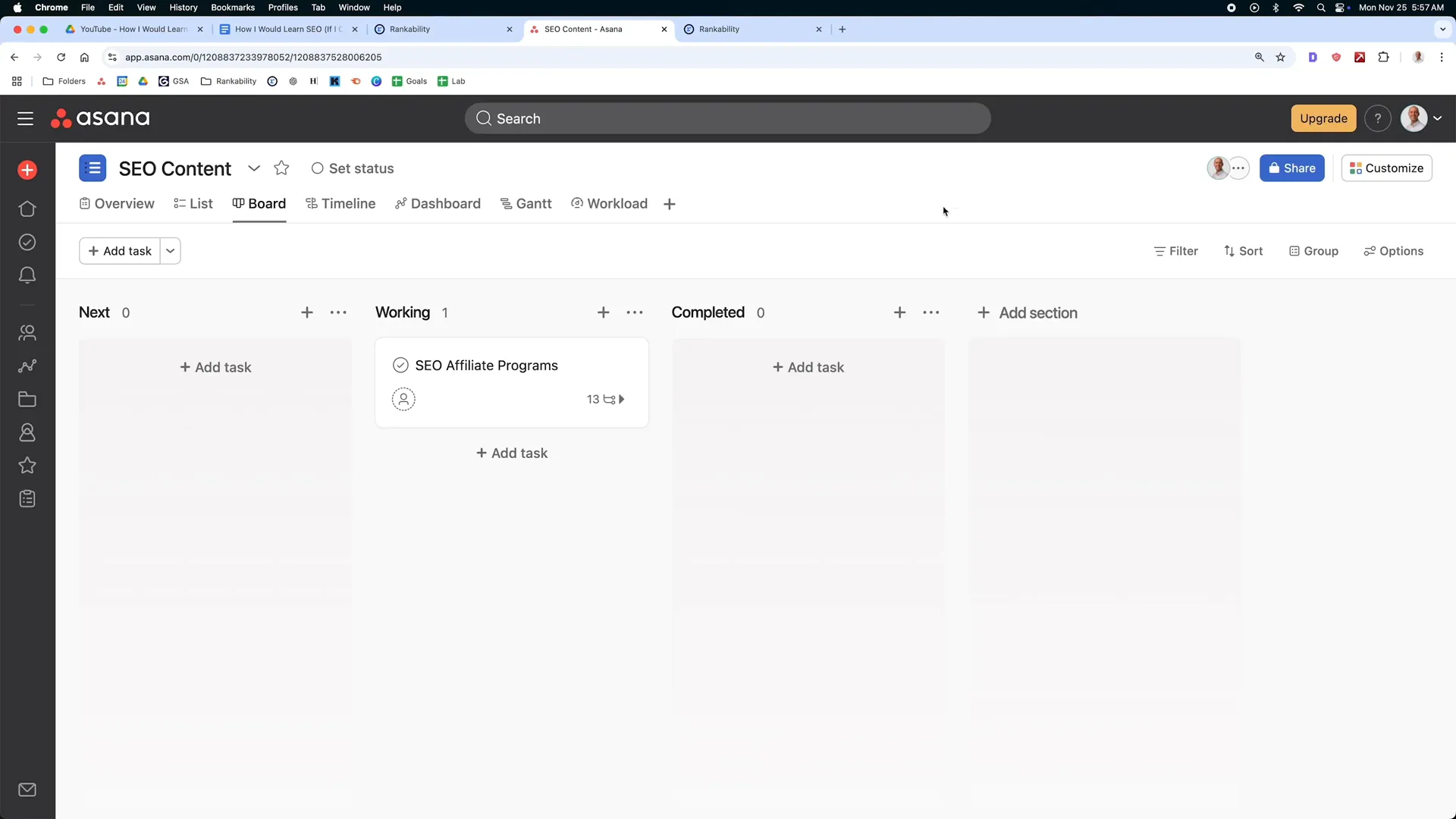SEO remains a vital skill in the digital landscape, with Google leading the charge as the most visited website globally. With over 132 billion monthly visitors and 8.5 billion daily searches, understanding SEO is crucial for anyone looking to make their mark online. In this post, we’ll break down a comprehensive 10-day plan to help you learn the fundamentals of SEO, whether you’re a beginner or looking to sharpen your skills.
Table of Contents
- 1. Find Keywords
- 2. Study the SERPs
- 3. Analyze Your Competitors
- 4. Identify Gaps
- 5. Map Out Your Site Architecture
- 6. Build Your SEO Content Production Workflow
- 7. Develop SEO Content Briefs
- 8. Find Backlink Opportunities
- 9. Brainstorm Link Bait Ideas
- 10. Embrace Just-In-Time Learning
1. Find Keywords
Keywords are the foundation of SEO. The process involves:
- Finding keywords: Use platforms like Reddit to explore broad topics. Search for relevant threads and save them as PDFs to analyze later.
- Utilizing YouTube: Search for your primary topic on YouTube to gather content ideas.
- Answer the Public: This tool can provide a plethora of content ideas based on your keyword.
- Existing Keyword Profile: Analyze your current keyword rankings using tools like Semrush. Focus on low-hanging fruit keywords ranked between positions two and fifteen.
- Keyword Gap Analysis: Compare your domain with competitors to identify keywords they rank for that you don’t.
2. Study the SERPs
Understanding the Search Engine Results Pages (SERPs) is crucial. Look for features like:
- Ads
- People Also Ask sections
- Video results
3. Analyze Your Competitors
Investigate how well your competitors are optimized for specific keywords. Take note of:
- The quality of their content
- User experience elements, like pop-ups
- Compliance with Google’s EAT (Expertise, Authoritativeness, Trustworthiness) guidelines
4. Identify Gaps
Identify gaps in your keyword and link profiles:
- Use the keyword gap tool in Semrush to compare your keywords with those of your competitors.
- Conduct a backlink gap analysis to see where you can improve your link-building efforts.
- Review your competitors’ branded search volume to gauge their market presence.
5. Map Out Your Site Architecture
Visualize your site’s structure by clustering topics into dedicated pages. Use tools like Rankability to identify related topics that should be covered.
6. Build Your SEO Content Production Workflow
Implement a Kanban board to manage your content production. Organize tasks into three columns: Upcoming, In Progress, and Completed. This visual representation will help streamline your workflow.
7. Develop SEO Content Briefs
Create detailed SEO content briefs for your copywriters. Use tools like Rankability to generate these briefs and ensure that they align with your SEO strategy.
8. Find Backlink Opportunities
Start with listicles in your niche to find backlink opportunities. Other strategies include:
- Local donation links for sponsorships
- Contributing to other blogs for backlinks
9. Brainstorm Link Bait Ideas
Utilize ChatGPT to brainstorm at least 25 unique link bait ideas. Focus on data-driven content and free tools, as these types of content often attract links effectively.
10. Embrace Just-In-Time Learning
To learn SEO effectively, adopt a just-in-time learning approach. Focus on practical application rather than theoretical learning. Spend 80% of your time doing the work and 20% studying.
FAQs
Is SEO worth learning in 2025?
Absolutely! SEO continues to be a fundamental aspect of digital marketing, with significant traffic potential from search engines.
How long does it take to learn SEO?
With dedicated effort, you can grasp the fundamentals in about 10 days, but mastery takes ongoing practice and real-world application.
What tools should I use for SEO?
Some recommended tools include Semrush, Rankability, and Answer the Public.
For more insights and personalized strategies, visit Digital Reach.





